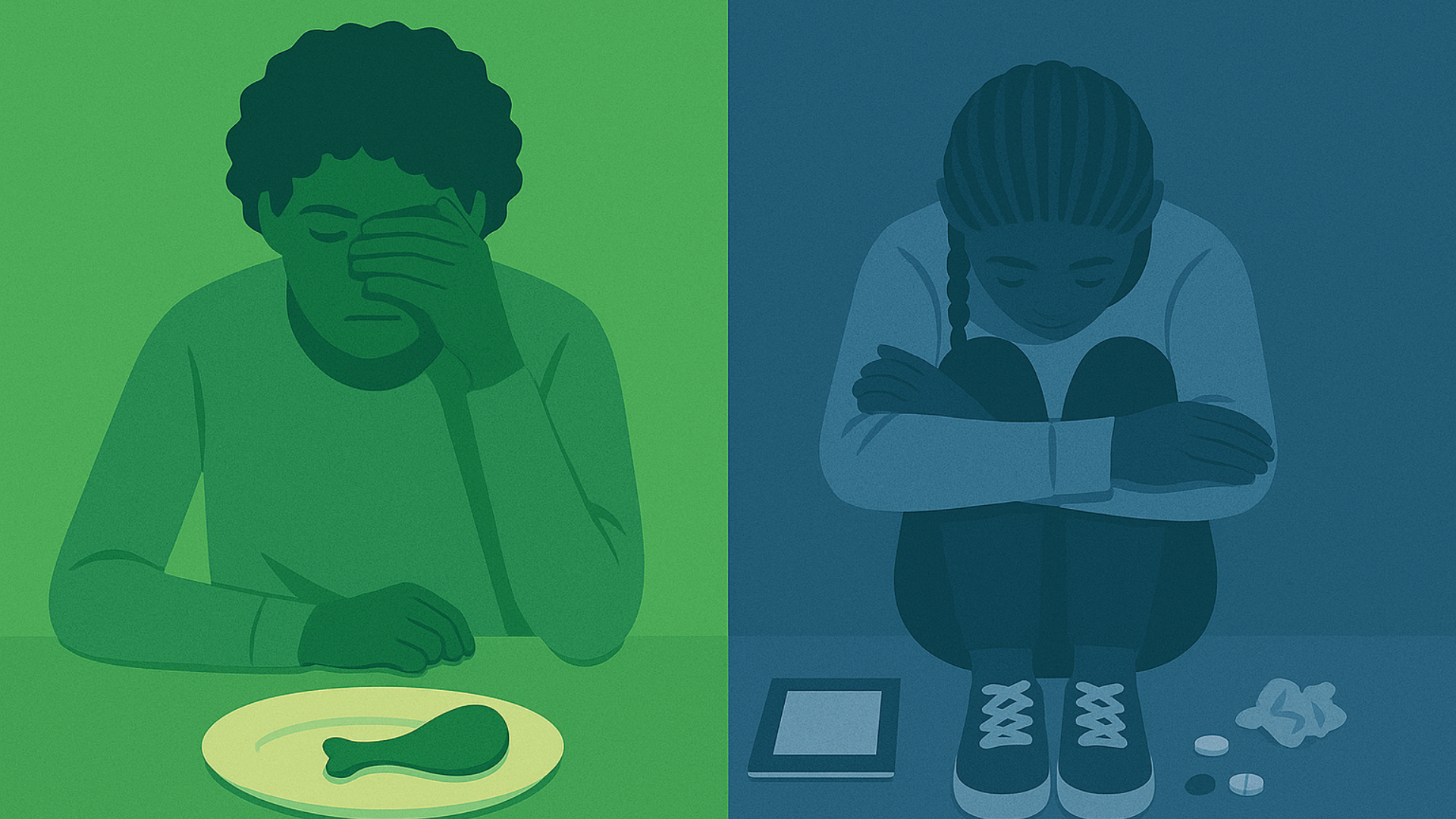Mental Health Awareness Month: Why does mental health matter?

May is Mental Health Awareness Month, so naturally, we’re taking the opportunity to address the topic. Having a healthy mind state empowers you to:
- Feel confident about yourself.
- Be a better friend, son, daughter, colleague, boss, parent.
- Emanate positivity, influencing your circumstances for the better.
- Laugh easier, pursue your passions, chase your dreams.
— and who wouldn’t want all of that?
All too often, we settle for a mediocre — and even miserable — state of being. The good news? Like physical health, mental health is completely open to improvement. At Thrive, we believe in nurturing our mental health, so we can be our best selves.
CHECKING IN WITH YOUR MINDSTATE
Influenced by a combination of genetics and external circumstances, mental health is strange, complex, and greatly impacts one’s quality of life. Mental health comprises one’s emotional and physical wellbeing, affecting how you feel, think, and act. Tuning in with your mental state can provide insight into how your external circumstances are affecting your overall wellbeing. For example:
- Is your living situation causing you to constantly feel on edge?
- Is your job driving you to reach for a second glass of wine more nights than not?
- Is the state of your relationship keeping you awake at night?
When your mental health is suffering, you can feel irritable, angry, sad, and hopeless. You may isolate yourself from your loved ones, neglect your hygiene, or be easily prone to emotional outbursts. Physical ailments like migraines, inflammation, and sickness can also result.
We can’t always feel optimal. Emotions like stress, loneliness, and sadness are unavoidable elements of life. Unfortunately, sometimes feelings of unhappiness are slow to fade. If left unchecked, mental health struggles can lead to substance abuse, debilitating mood and anxiety disorders, and suicide.
When faced with mental health struggles, you might not be sure what exactly is causing your suffering, and you may be too exhausted to sort it all out. Whether you need to process unaddressed trauma, unsettled circumstances, tumultuous relationships, or something else — seeing a therapist can help you understand how the state of your mind is affecting your wellbeing and help you develop tools to adjust your life in a way that promotes your mental health.
OUR FAVORITE WAYS TO BOOST MENTAL HEALTH
With the mind being as unique as it is, we all have our favorites ways of feeling better. Here are some of our favorite ways to supplement mental health at Thrive —
- Create healthy habits. Committing to a healthy lifestyle by hydrating, indulging in nutrient-rich food, and exercising intuitively can do wonders for your wellbeing.
- Win your morning. Starting your day early with a hot cup of coffee or tea and a morning walk can give you a boost of confidence that’ll define your day.
- Alternatively, sleep in. Like we said, mental health is uniquely your own. Sometimes, sleep should be your first priority. A good night’s rest can make you feel like your absolute best self.
- Connect with your loved ones. Isolation can put a damper on your mood, while laughing with your friends over dinner can liven you up. So, we choose the latter option.
- Stand up for yourself. Feel empowered to demand the respect you deserve.
- Make the decision. Unsettled circumstances can keep you from feeling at ease. If you have a difficult decision to make, you might feel better once you commit to a choice — rather than remaining in a state of uncertainty.
- Consider getting an emotional support animal or pet to keep you company. Whether it’s a dog, cat, fish, or parakeet, upon bringing home a pet, you may just discover your new best friend and a whole new sense of purpose.
- Nurture your passions — even if you just turn them into after-work hobbies. Foster the parts of yourself that make you feel the most alive, curious, and interested.
- See a therapist. Talking to an unbiased mental health professional about your aspirations, emotions, relationships, difficult decisions, and all of the other things that make up your life can heal your mental health struggles, give you a guiding light, and catalyze your growth.
MORE ON THERAPY
The mind is a strange, complex organ with intricacies that are yet to be fully understood. A therapist offers an unbiased, clinical perspective that can help you sort through your thoughts and emotions and empower you to fully embrace life. If you’re in need of a mental health boost, feel free to reach out to Thrive to book a therapy session.
The post Mental Health Awareness Month: Why does mental health matter? first appeared on Thrive Wellness.








